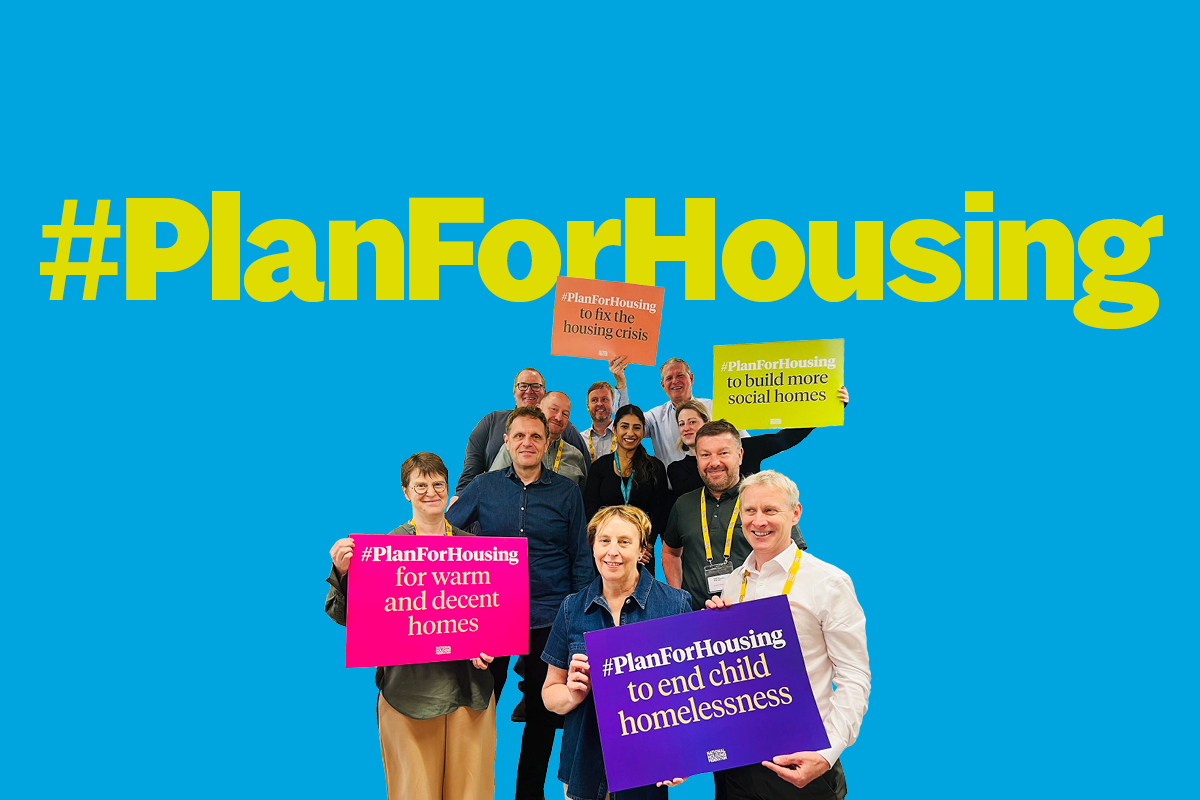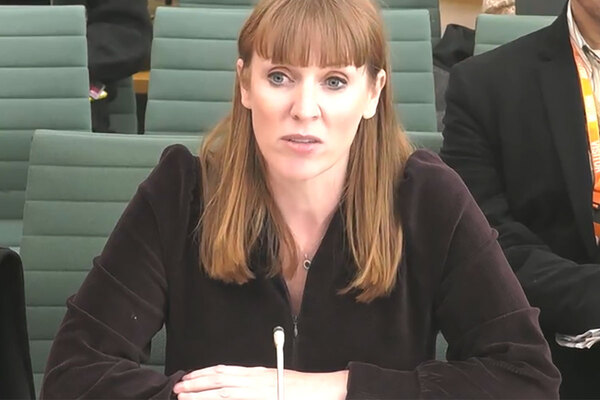You are viewing 1 of your 1 free articles
Can Labour come up with the real, outcome-focused long-term plan we need?
Labour’s housebuilding plans risk being a short-sighted approach to the housing crisis, writes Matthew Bailes, chief executive of Paradigm Housing
I have lost count of the number of recent housing ministers who claimed to have a long-term housing strategy. All of them have been wrong. We haven’t had anything resembling a comprehensive housing strategy for decades.
The new government says its long-term plan is going to be different. So it is a good time to ask what a serious long-term strategy would look like.
It needs to contain comprehensive answers to the following questions.
First, what is the government ultimately trying to achieve?
These aims need to be outcome-focused, and include quantifiable objectives on issues like affordability, homelessness, overcrowding, the quality of accommodation and the long-term costs to the taxpayer of the housing system.
Thus far, the government has not met this test. Its key objective, to deliver 1.5 million new homes – while welcome – is about outputs, not outcomes.
Sticking with an output target would be a mistake for at least three reasons.
First, defining objectives in this way tends to limit debate on issues that are relevant to achieving the outcomes you really want. In this case, it risks policy that focuses on the homes we build each year, not the 20 million or so we have already.
Second, focusing on output targets also tends to drive bad decisions. We have a history of supply targets leading to poor choices: the estates built on the cheap in the 1960s and 1970s, and shoddy permitted development conversions more recently. Some of these mistakes might have been avoided if ministers had focused on the full range of housing outcomes.
Third, it is easier to make the political case for change if you talk about problems voters can relate to. Most people can at least understand why we need to tackle affordability, homelessness and overcrowding. It is much harder if you only talk about what you are going to do, rather than why you are doing it.
The second question is: Where are we starting from and why are we there?
“I have lost count of the number of recent housing ministers who claimed to have a long-term housing strategy. All of them have been wrong”
The first part of the question is relatively easy to answer. We are in a very bad place indeed, with a crisis that spans most relevant outcomes, from affordability to the quality of some of our homes.
The second part is more difficult, but also more important. The stock answer – that we haven’t built enough homes – is of course true, but it is hardly a deep enough piece of analysis to underpin a serious long-term plan.
It is essential that this analysis looks at the housing system in the round.
Take the key issue of affordability. The planning system is part of the problem, because it has failed to release enough land for housing development, which helps to explain why supply has not kept pace with demand.
But the tax system is at least as big an issue. It results in large amounts of under-occupation, as council tax is deeply regressive and provides little incentive for people to consume less housing. It also penalises people for moving (via stamp duty). That means, for example, that an elderly couple might pay thousands in stamp duty to trade a four-bedroom house for a smaller bungalow, but end up paying more or less the same level of council tax. It is little wonder so few bother.
Obviously discouraging people from downsizing adds to overall demand for housing, which inflates prices. Equally obviously, discouraging people from moving also reduces the number of people who might buy a new home, and fewer buyers means fewer new homes are built. The government is therefore fuelling demand but at the same time reducing the supply of new homes – all thanks to its tax system.
The problem is compounded by other elements of the system. Until recently, tax treatment encouraged speculative investment in housing by buy-to-let landlords. This fuelled prices while squeezing out first-time buyers. And little has been done to curb the rise of second home ownership and Airbnb, which has the same sort of effects.
Similarly, too little thought has been given to controlling the amount of mortgage debt chasing a supply of homes that is deeply inelastic. You don’t need to be a fervent monetarist to realise that throwing more money at roughly the same number of homes inevitably increases prices.
The fact that the housing market is deeply distorted means the imperative to build a large amount of affordable housing is all the greater. More affordable homes are essential, not just to house those who need them, but also to ensure overall supply keeps pace with overall demand. But we have, of course, cut delivery of affordable housing to about a third of the number being built in the 1970s, even though the need for these homes has grown.
Little wonder, then, that affordability has got a lot worse.
The next question should be: What happens if we do nothing? Given that the system is programmed to fail, unsurprisingly, the answer is depressing.
“We have cut delivery of affordable housing to about a third of the numbers being built in the 1970s, even though the need for these homes has grown”
Research by the National Housing Federation last year showed that homelessness and overcrowding will continue to get worse. Analysis by the Institute for Fiscal Studies shows that, on current trends, within 20 years, 15%-20% of pensioners could be living in the private rented sector (the current figure is 5%). Most of them will rely on benefits because they will not have sufficient pension savings to cover their housing costs.
In other words, if there is light at the end of the tunnel, it is the light of an oncoming train.
My last question is the obvious one. What do we need to do to meet our objectives?
If you do a comprehensive analysis of my second question – what is going wrong now – the chances are that the headlines are reasonably obvious. Planning reform, a fundamental rethink of the tax system and a massive expansion of the supply of affordable housing would be top of my list.
Looking beyond affordability, reform is also needed to ensure that we don’t repeat past mistakes on quality and that there are adequate protections for renters and leaseholders.
We also need a strategy that uses public money, regulatory levers and tax incentives to generate the investment needed to meet energy-efficiency and climate targets.
Recent governments have failed to take anything like this holistic approach. They have not had the political courage to take on difficult issues (eg tax reform). And they have not had the political will to find additional money, even when there is a compelling case that investment now provides excellent returns later (eg affordable housing).
Some may also have fallen into the now-familiar trap of thinking that planning reform alone will unleash the private sector to build us out of the crisis. This is snake oil. Developers, for good reasons, will only build at a rate that is consistent with maintaining current prices (the so-called absorption rate). They have built more than 200,000 homes in a year in England precisely once since World War II. If there is a route to building our way out of the crisis, it involves building something in the region of 150,000 affordable homes per year (as well as galvanising private developers) – roughly treble the level we currently manage.
The question now is whether Angela Rayner, the housing secretary, and Matthew Pennycook, the housing minister, can come up with the sort of ambitious and comprehensive plan that we need to tackle the crisis. If they do, their political stock is likely to rise (particularly within the Labour Party), and future historians are likely to judge them very favourably.
If they don’t, we will be left, once again, in a position in which the country is limping along without a serious long-term housing plan. Housing will resume its place alongside issues like social care – as a problem that our political system simply can’t solve.
We should do all we can to persuade them, and their colleagues, to make the right choices.
Matthew Bailes, chief executive, Paradigm Housing
Sign up for our daily newsletter
Already have an account? Click here to manage your newsletters













